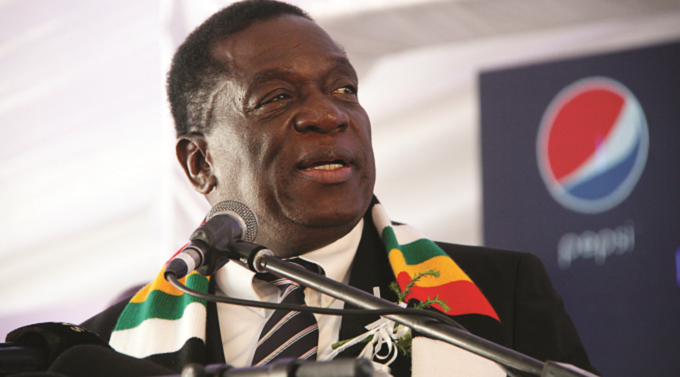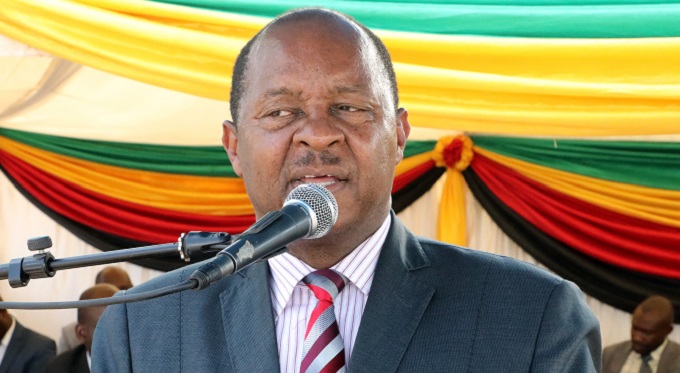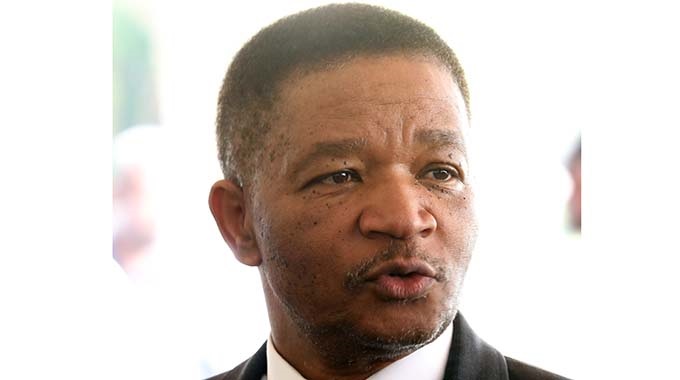EDITORIAL COMMENT: Clean-up exercise should not be a one-day event

President Mnangagwa yesterday launched the national clean-up campaign in Harare; arguably the first time in the history of our country that a President has done so.
It was the most high-profile parade of personages our country could put together, the President being accompanied by Vice-Presidents Constantino Chiwenga and Kembo Mohadi, First Lady Cde Auxilia Mnangagwa, Defence and War Veterans Minister, Oppah Muchinguri-Kashiri and several Cabinet Ministers.
At the event, the President also declared the first Friday of each calendar month as National Environment Cleaning Day.
This is part of the Government’s practical steps to ensure the country has sustainable environmental management and waste disposal systems.
The President signed a declaration to that end as well.
The national environmental cleaning across the country will be carried out between 8am and 10am. The theme of yesterday’s event was “Zero Tolerance to Litter: My Environment my Pride.”
What we have seen before yesterday’s huge event are companies, church organisations or individuals working with the Environmental Management Agency (EMA) and local authorities to conduct ad hoc clean-up campaigns in small, selected parts of the country.
While their activities are commendable, we also recognise that the organisations tended to undertake them primarily to advance their public relations objectives with making cities and towns clean being secondary.
There is no denying that our country has become dirtier, a state of affairs that emerged around the early 2000s when the economic challenges set in.
The dirt is most evident in urban areas where local authorities, hit by dwindling revenues as ratepayers default and rising cost of service delivery, are failing to collect refuse or maintain their sewer lines as regularly as they should.
Mounds of garbage can be seen everywhere in Harare, Bulawayo, Gweru, Masvingo, Mutare and other urban areas.
Sewer lines in these places have become old, thus cannot handle the high volumes of effluent that is being discharged by rising urban populations.
They burst quite often, spewing raw sewage into streets; in some cases, back into homes. Financially hamstrung local authorities struggle to repair them or to build new ones.
This has been one big trigger for frequent outbreaks of diseases such as cholera and typhoid that have killed and sickened tens of thousands over the past few years.
Many industries, also facing challenges in the prolonged economic depression, are failing to treat their waste and dispose of it properly.
As a result, they are discharging it untreated into rivers and open lands.
A few have been charged and fined substantial sums of money by EMA.
While urban areas are the major culprits, inadequacies in sanitation are there in rural areas too.
Because of lack of resources to build toilets many people in the countryside practise open defecation.
Unicef reported in September 2015 that 40 percent of the rural folk in the country are still using the bush as toilets.
This is a big health hazard because when the rains fall, they wash some of the human waste into rivers and wells whose water the people consume.
But what we saw yesterday, the declaration of every Friday of every month as the National Environment Cleaning Day by the President should renew our people’s quest for a cleaner and healthier environment.
“Let us be united,” said President Mnangagwa.
“Let us love peace. Let us love harmony. Let us work together. Let us clean our nation, clean our environment together. Let us be together in broad daylight, at night, during challenges and let us be together. The world we live in is deteriorating rapidly due to the dire consequences of climate change which manifest as floods, heat waves, diseases, water and air pollution, land degradation and desertification among other challenges.
“These developments require us to take bold and decisive action with regards to the management of our environment of ensuring a clean environment. We need to keep our villages, towns and cities clean and hygienic, both for this generation and generations to come. We must therefore be re-oriented to practise good environmental and waste management through increased advocacy, education, training and awareness. We must do this from a place of pride, not just a necessity.
“Furthermore, it is important to be alive to the need for the sound management of chemical waste, solid waste as well as electronic and plastic waste, for the protection of human health, flora and fauna.”
We have heard stories about how smart and well-organised Rwanda is; how its capital, Kigali is held as Africa’s cleanest city. President Paul Kagame leads his nation on Umuganda Day to clean up the Great Lakes country. The community clean-up is held on the last Saturday of every month. On that day shops are closed, Rwanda’s well paved roads are empty of vehicles as every able-bodied person joins their communities to spruce up their environment.
The Rwandan example in which their President leads the clean-up programme once every month, is one that our country, led by our own President, must follow for our country must not be as filthy as it has become.
With the first citizen leading the campaign, we are hopeful that more of our people would be persuaded to be involved in smartening our environment.
This obviously entails cleaning up our physical environment, making sure that our water sources are clean and ensuring that our ablution facilities are in “tip-top” condition.
However, we need not forget the condition of our homes and our persons as well. Many homes and office blocks in our country need fresh coats of paint, inside and outside.
We must wash our clothes and bathe regularly. These pose financial implications on councils, companies, families and individuals but we must know that dirt can actually kill us.








Comments